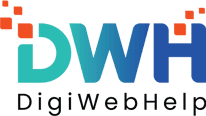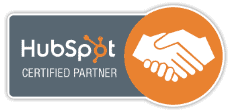
HubSpot vs Calendly
In today’s fast-paced business world, efficient scheduling is paramount to success. With countless appointments, meetings, and tasks demanding your attention, a reliable scheduling tool can make all the difference. Two of the most popular options on the market are HubSpot and Calendly. In this comparison, we’ll delve into the capabilities of each platform to help you make an informed decision that aligns with your business needs.
HubSpot
HubSpot is a comprehensive and widely used inbound marketing and sales software platform designed to help businesses attract, engage, and delight customers. It offers a suite of tools and features that assist organizations in managing their marketing, sales, customer service, and CRM (Customer Relationship Management) efforts. HubSpot’s integrated approach aims to create a seamless and effective customer experience throughout the entire buyer’s journey.
Calendly
Calendly is a popular cloud-based scheduling software that simplifies the process of arranging meetings, appointments, and events. It is designed to streamline the scheduling process and eliminate the back-and-forth emails and phone calls typically involved in setting up meetings.
The main purpose of Calendly is to provide a convenient way for individuals and businesses to share their availability with others and allow them to book time slots based on their preferences. Whether you’re a professional, a small business owner, or part of a large organization, Calendly can help you efficiently manage your schedule and improve productivity.
HubSpot vs Calendly Features: An Overview
HubSpot offers a versatile all-in-one platform encompassing marketing, sales, and customer service tools. It integrates seamlessly, enabling businesses to manage their entire customer journey effectively. In contrast, Calendly specializes in scheduling and appointment booking, streamlining time management, and enhancing client interactions. HubSpot provides a comprehensive solution for various business needs, while Calendly excels in simplifying scheduling processes. Choosing between them depends on whether you require a comprehensive business management suite or a dedicated scheduling tool to optimize time utilization and client engagements. Evaluate your priorities and select the solution that aligns with your specific requirements.
| Features | HubSpot | Calendly |
|---|---|---|
| Easy Scheduling | Yes | Yes |
| Customizable | Yes | Yes |
| Calendar Sync | Yes | Yes |
| Automated Reminders | Yes | Yes |
| Advanced Analytics | Yes | Yes |
| CRM Integration | Yes | No |
| Lead Nurturing | Yes | No |
| Task Automation | Yes | No |
HubSpot vs Calendly Features: Detailed Comparison
Scope and Versatility
HubSpot:
Renowned for its all-in-one platform, HubSpot seamlessly integrates marketing, sales, and customer service tools, fostering a comprehensive approach to managing various aspects of business operations. It empowers teams with a unified platform to streamline customer interactions and drive growth across departments.
Calendly:
Specializing in scheduling and time optimization, Calendly excels in simplifying appointment bookings and enhancing time management efficiency. While its focus is narrower, it serves as a dedicated solution to streamline scheduling processes and enhance client engagements.
User Interface and Accessibility
HubSpot:
Designed with an intuitive and user-friendly interface, HubSpot caters to a diverse user base, including marketing, sales, and customer service professionals. Its interface promotes ease of use and quick adoption, facilitating collaboration across departments.
Calendly:
Calendly's user interface is tailored specifically for scheduling, offering a clean and straightforward design that ensures a seamless experience for both users and clients engaging in appointment bookings.
Marketing and Sales Integration
HubSpot:
Distinguishing itself with seamless integration across marketing, sales, and customer service functions, HubSpot's unified platform enables data-driven decision-making and collaboration between teams. It ensures consistent communication and a holistic view of customer interactions.
Calendly:
While its primary focus is scheduling, Calendly can be integrated with other tools, such as CRM systems, to enhance communication and data sharing. This integration aids in maintaining a comprehensive record of client engagements.
Marketing Automation and Engagement
HubSpot:
Offering a robust suite of marketing automation features, HubSpot empowers businesses to create targeted campaigns, nurture leads, and engage with customers across multiple channels. Its capabilities extend beyond scheduling to encompass a wide array of marketing strategies.
Calendly:
Centered on scheduling automation, Calendly allows users to customize availability, automate reminders, and optimize the appointment booking process for improved engagement and time management.
Customer Service Tools
HubSpot:
Equipped with customer service features such as ticketing, live chat, and knowledge base functionalities, HubSpot enhances customer support interactions and fosters stronger customer relationships through streamlined communication.
Calendly:
While its primary focus is not on customer service, Calendly's efficient scheduling features indirectly contribute to improved client interactions by reducing scheduling complexities and ensuring timely appointments.
CRM Integration and Data Insights
HubSpot:
Distinguishing itself with a built-in CRM, HubSpot centralizes customer data and interactions, facilitating a comprehensive understanding of customer relationships. Its reporting and analytics provide insights across marketing, sales, and customer service functions.
Calendly:
Through CRM integration, Calendly enhances data synchronization and provides insights into scheduling patterns, contributing to a more holistic view of customer engagements and interactions.
Appointment Scheduling Expertise
HubSpot:
While HubSpot offers basic appointment scheduling within its CRM, its specialization extends beyond scheduling to cover a wide range of business functions.
Calendly:
With a dedicated focus on appointment scheduling, Calendly provides advanced features such as customizable booking links, availability settings, and automated reminders, catering specifically to optimizing time utilization and enhancing client interactions.
Customization and Adaptability
HubSpot:
Offering moderate customization options, HubSpot allows businesses to tailor the platform to their unique needs and workflows, accommodating a diverse range of business requirements.
Calendly:
Prioritizing scheduling customization, Calendly empowers users to set specific availability, appointment types, and branding, ensuring a personalized and efficient scheduling process.
Scope and Versatility
User Interface and Accessibility
Marketing and Sales Integration
Marketing Automation and Engagement
Customer Service Tools
CRM Integration and Data Insights
Appointment Scheduling Expertise
Customization and Adaptability
DigiWebHelp's Recommendations:
As a dedicated marketing and technology consulting firm, DigiWebHelp is committed to providing informed recommendations tailored to the unique needs of our clients. When comparing HubSpot and Calendly, our insights lead to the following suggestions:
HubSpot: A Comprehensive Business Management Solution For businesses seeking a comprehensive all-in-one platform that seamlessly integrates marketing, sales, and customer service functions, DigiWebHelp recommends HubSpot. This platform is ideal for organizations aiming to streamline their entire customer journey, enhance collaboration between departments, and leverage robust reporting and analytics. HubSpot’s versatility caters to a wide range of business sizes and needs, making it suitable for those seeking a holistic approach to business management.
Calendly: Optimize Time Management and Client Engagements If your primary focus revolves around scheduling and appointment management, DigiWebHelp suggests Calendly as a specialized solution. Calendly is well-suited for businesses aiming to enhance time management, streamline appointment bookings, and provide a seamless scheduling experience for clients. Its user-friendly interface and dedicated scheduling features make it an excellent choice for optimizing interactions centered around appointments.
Assess Your Business Objectives: When deciding between HubSpot and Calendly, carefully evaluate your organization’s specific objectives, operational needs, and growth priorities. Consider whether you require a comprehensive suite of tools for marketing, sales, and customer service, or if your primary focus is on enhancing scheduling efficiency and client interactions.
Integration and Scalability: Assess how each platform integrates with your existing systems and whether it aligns with your scalability requirements. HubSpot’s integration capabilities foster collaboration across departments, while Calendly’s integration options contribute to seamless communication within scheduling processes.
Personalization and User Experience: Consider the level of personalization and user experience that best suits your business. HubSpot’s broader functionalities allow for moderate customization across various functions, while Calendly’s specialization offers tailored scheduling customization and an optimized user experience.
Budget Considerations: Evaluate the pricing models of both platforms and align them with your budget. HubSpot offers tiered plans that encompass marketing, sales, and customer service functionalities, while Calendly’s pricing focuses on scheduling features. Choose the option that best fits your financial constraints and aligns with your priorities.
Conclusion
In conclusion, DigiWebHelp’s recommendations for choosing between HubSpot and Calendly hinge on the specific goals and requirements of your business. HubSpot provides a comprehensive solution for holistic business management, collaboration, and growth, while Calendly excels in enhancing scheduling efficiency and optimizing time management. Collaborate with our experienced consultants to gain deeper insights, assess your unique needs, and make an informed decision that empowers your business to achieve its objectives effectively.
We're Experts in
Solving Complex Issues
With Tailored Solutions
We collaborate wtih your team and understand your vision to create a comprehensive and strategic plan tailored to your business needs.
Our team helps integrate all of your systems so you can have a unified platform to access data from one place.
We work on executing your tailored plan to help your business reach its goals.
From pulling reports and analyzing your data, we continue to optimize your plan.
FAQs
Both platforms cater to B2B marketing, but Pardot’s deep integration with Salesforce may make it a stronger choice for businesses heavily reliant on Salesforce CRM.
Yes, both platforms can be adapted for e-commerce businesses, with HubSpot’s broader range of tools potentially offering more versatility.
Yes, both platforms offer social media scheduling, but HubSpot provides more comprehensive social media management features.
Yes, both platforms have varied pricing structures based on features and usage. It’s best to compare their pricing models directly.
Yes, both platforms provide training resources and customer support, but HubSpot is known for its extensive educational resources.
Let’s Talk
Enter your email address so we can get connected.


